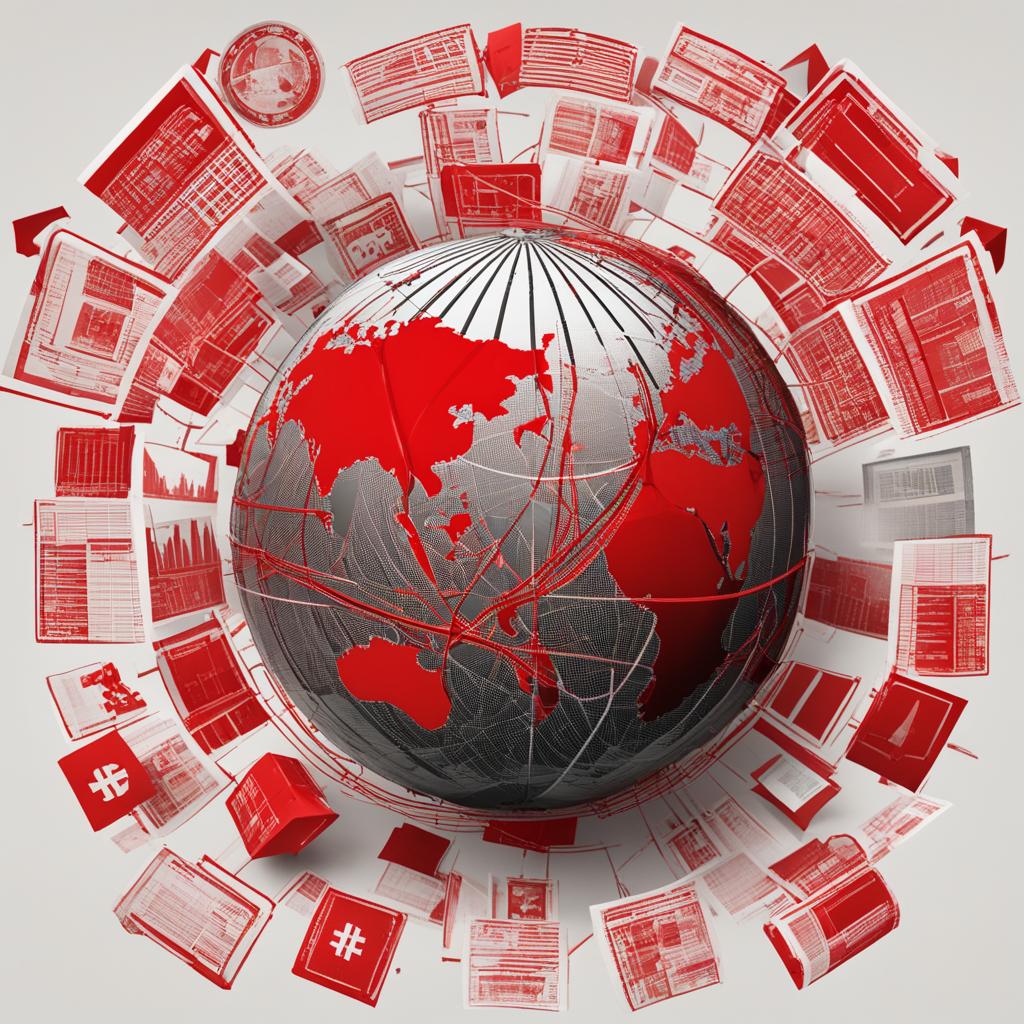Greetings and welcome to our discussion on the global economic challenges that we face today. As we navigate through this ever-changing landscape, it’s imperative that we stay ahead of the curve and anticipate potential risks in order to safeguard our nation’s progress amid worldwide challenges.
One of the key strategies in managing these challenges is economic resilience. By building a strong foundation and proactively addressing global financial risks, we can better protect our economy and minimize the impact of unforeseen challenges. This is especially important in today’s globalized world, where a crisis in one corner of the world can have a ripple effect on economies across the globe.
Throughout this section, we will explore the importance of economic resilience, discuss the global financial risks that we face, and examine the methods we can employ to mitigate these risks. Here, we will delve deep into the significance of maintaining economic stability, the importance of having a diversified economy and the measures that can be taken to anticipate and address global financial risks.
So join us as we examine the challenges we face in today’s world and discover the ways in which we can strengthen our economic resilience to protect our progress in the face of worldwide uncertainties. Let’s get started!
Strengthening Economic Resilience
As we face global economic challenges, it is essential that we prioritize strengthening our economic resilience. This means taking proactive measures to ensure economic stability and fostering a diverse economy that can better withstand global shocks.
One key strategy for strengthening economic resilience is maintaining economic stability. This can be achieved by adopting sound fiscal and monetary policies that promote sustainable growth and prevent economic instability. By implementing measures such as prudent debt management, effective regulation of financial markets, and the promotion of trade policies that support growth and development, we can foster a stable economic environment that is better equipped to withstand global shocks.
Another important element of economic resilience is having a diversified economy. This means investing in key sectors and industries that can help us weather economic storms. By diversifying our economy, we can reduce our reliance on specific sectors or industries that may be vulnerable to global risks, such as fluctuations in commodity prices or shifts in global demand.
Investing in Key Sectors
Investing in specific sectors can also help us build economic resilience. For example, the technology industry has emerged as a key driver of economic growth and innovation. By investing in this sector, we can create new jobs, spur innovation, and position ourselves to compete in the global marketplace.
Agriculture is another sector that is crucial for economic resilience. By investing in sustainable farming practices and promoting exports of high-value crops, we can create new economic opportunities and reduce our dependence on imports. Additionally, investing in renewable energy sources such as wind and solar power can help us reduce our reliance on fossil fuels and promote sustainable economic growth.
The Importance of Collaboration
Ultimately, building economic resilience requires collaboration and cooperation among all stakeholders. Governments, businesses, and individuals all have a role to play in fostering a resilient economy that can withstand global challenges. By working together and adopting a long-term perspective, we can build an economy that is better equipped to weather economic storms and emerge stronger in the face of uncertainty.

We must take a proactive approach to strengthening economic resilience, investing in key sectors and industries, and fostering a diverse economy that can weather global shocks. By working together and adopting a long-term perspective, we can ensure our nation’s economic progress for generations to come.
Anticipating Global Financial Risks
As we discussed earlier, anticipating global financial risks is crucial in safeguarding our economic progress. In this section, we will explore the importance of conducting thorough risk assessments and implementing proactive measures to mitigate potential threats.
Risk assessment is the process of identifying potential risks that may impact our economy, evaluating their likelihood and potential impact, and developing strategies to address them. This allows us to take proactive measures to mitigate the potential impact of these risks on our economic progress.
One example of proactive measures is diversification. By diversifying our economy and investing in key sectors such as technology, healthcare, and renewable energy, we can hedge against potential risks that may arise in other sectors. This ensures that our economy remains strong and resilient in the face of global financial challenges.
Another example of proactive measures is strengthening our financial regulations. This includes monitoring financial institutions and ensuring that they are complying with regulations to prevent systemic risks from spreading throughout the economy.
Case Study: 2008 Financial Crisis
The 2008 financial crisis is a prime example of the importance of anticipating global financial risks. Many financial institutions engaged in risky lending practices, which eventually led to the collapse of the housing market and a global financial meltdown. This crisis highlighted the need for stronger financial regulations and risk assessment in order to safeguard our economy.
| Factors that contributed to the 2008 financial crisis | Proactive measures taken to mitigate future risks |
|---|---|
| Lax lending standards | Stricter lending standards and increased oversight of financial institutions |
| Excessive risk-taking by financial institutions | Stronger financial regulations and increased scrutiny of risk-taking behavior |
| Lack of transparency in the financial system | Greater transparency in financial reporting and increased oversight of financial institutions |
By learning from the mistakes of the past and implementing proactive measures, we can better anticipate and address potential risks, ensuring that our economy remains strong and resilient in the face of global financial challenges.
Safeguarding Economic Progress Amid Global Challenges
As we have discussed in the previous sections, ensuring economic resilience is crucial to navigating the global challenges that we face. We must remain vigilant in our efforts to safeguard our nation’s progress, which requires a proactive approach to addressing risks and maintaining stability.
Continuing to Prioritize Economic Resilience
As a nation, we must continue to prioritize economic resilience. This means fostering a diverse economy, investing in key sectors, and taking measures to mitigate risks before they become threats. By doing so, we can better withstand global shocks and protect our progress.
Remaining Vigilant in Anticipating Global Risks
Anticipating global financial risks is also critical in safeguarding economic progress. We must conduct thorough risk assessments and remain proactive in implementing measures to address potential threats. By staying ahead of the curve, we can better protect our economy and minimize the impact of unforeseen challenges.
A Collective Effort
Building economic resilience is not the task of a single entity; rather, it requires a collective effort on the part of policymakers, businesses, and individuals. We must work together to create a more resilient and prosperous future for our nation.
In summary, by prioritizing economic resilience, remaining vigilant in anticipating global risks, and working together, we can safeguard our economic progress amid global challenges. Let us continue to invest in our future and build a stronger, more resilient nation.




